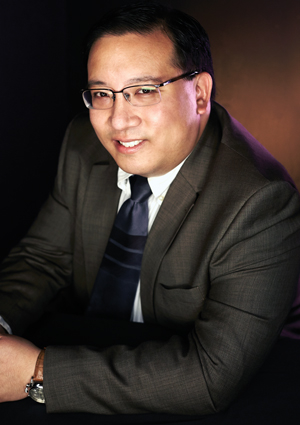Summit on legal innovation in legal services gets underway in Silicon Valley

Photo of Victor Li by Saverio Truglia
It might be strange to attend a conference about innovation in legal services and hear the names Carole King and Herbert Hoover invoked as major themes.
But it worked in the context of the National Summit on Innovation in Legal Services. For the next couple of days, I’ll be at Palo Alto, California, to report on the summit, which is being co-sponsored by the American Bar Association Presidential Commission on the Future of Legal Services and Stanford University School of Law. The main function of the summit is to look at new and innovative ways to deliver legal services to the people who desperately need them.
“Access to affordable legal services is critical to a society founded on the rule of law,” said Judy Perry Martinez, chair of the ABA Commission on the Future of Legal Services, in her introductory remarks during Saturday’s opening plenary session at Stanford University. “Yet, despite our best efforts, it has long been one that our profession has struggled with. We have not been able to make justice for all a reality.”
It was ABA President William C. Hubbard that invoked Carole King and her song “I Feel the Earth Move” to describe how technology has radically changed the practice of law. Hubbard, who provided the opening remarks along with Martinez and M. Elizabeth Magill, Dean of Stanford Law School, quoted the song to illustrate his point about how technology has forever altered the landscape for lawyers, and they can either embrace the opportunity by breaking new ground or they can stand pat and fall through the cracks. Hubbard took an optimistic tone and encouraged the lawyers, academics and techies in attendance to work together and reach for the sky.
“We must constantly embrace innovation and technology, or we face the threat of becoming obsolete,” Hubbard said. “In law, we tend to follow precedent, but sometimes we must break from tradition and seek better ways. We can keep acting the way we’ve been acting and risk losing the people we are supposed to serve, or we can embrace tech and innovation in order to help them.”
Meanwhile, our 31st president was a major theme for the plenary session’s featured speaker: the Honorable Mariano-Florentino Cuéllar, Associate Justice of the Supreme Court of California. Cuéllar, a former Stanford Law professor, invoked Hoover’s name as a Stanford alumnus and someone who cared very deeply about the effects of globalization. “In a 21st century legal practice, it’s interesting to juxtapose your service to your client and your sense of humanity, with globalization and technology, two powerful forces that individuals can’t control,” said Cuéllar, who was interviewed on-stage by the Judge Jeremy Fogel, a senior U.S. district judge for the Northern District of California and current director of the Federal Judicial Center.
Cuéllar noted that one of the biggest access-to-justice problems he’s seen comes down to the language barrier. “In California, there are 7.5 million people who don’t speak English well,” said Cuéllar, who also mentioned landlord-tenant cases and family law as other areas where there is a large amount of unmet legal demand. “Historically, the state doesn’t provide interpreter services for civil cases. You get cases in family court, for instance where two people are duking it out and don’t speak English, and it’s up to their kids to act as translators. It’s the worst thing in the world.”
As a sitting judge with California’s highest court, Cuéllar was careful about giving his unvarnished opinions. He proposed using video conferencing technology to allow translators to work more efficiently rather than making them travel from court to court, an issue conference attendee Dan Lear, director of industry relations at Avvo, noted was nothing new. “Feels a bit 2001ish,” Lear reacted on Twitter. Meanwhile, legal hacker Tom Ortega II of Omega Ortega LLC, winner of the ABA Journal’s Hackcess to Justice New Orleans contest in March, asked Cuéllar to name specific problems facing the legal industry so that legal hackers would be able to develop solutions. Cuéllar spoke about some family law issues and proposed an app that could help attorneys with basic legal issues so they could deal with more important matters. He also noted that it was difficult to give specific examples because “some problems that seem easy actually are easy, and others are actually hard.”
Ultimately, Cuéllar emphasized that it was important to change the way lawyers are educated. “I think lawyers have to learn a lot about technology,” he said. “As legal services get reorganized and outsourced and lawyers rely more on automated software, it’s helpful for someone to know how an algorithm works and what are weak spots. We must make it so that a large proportion of law school grads have an understanding of this.”



